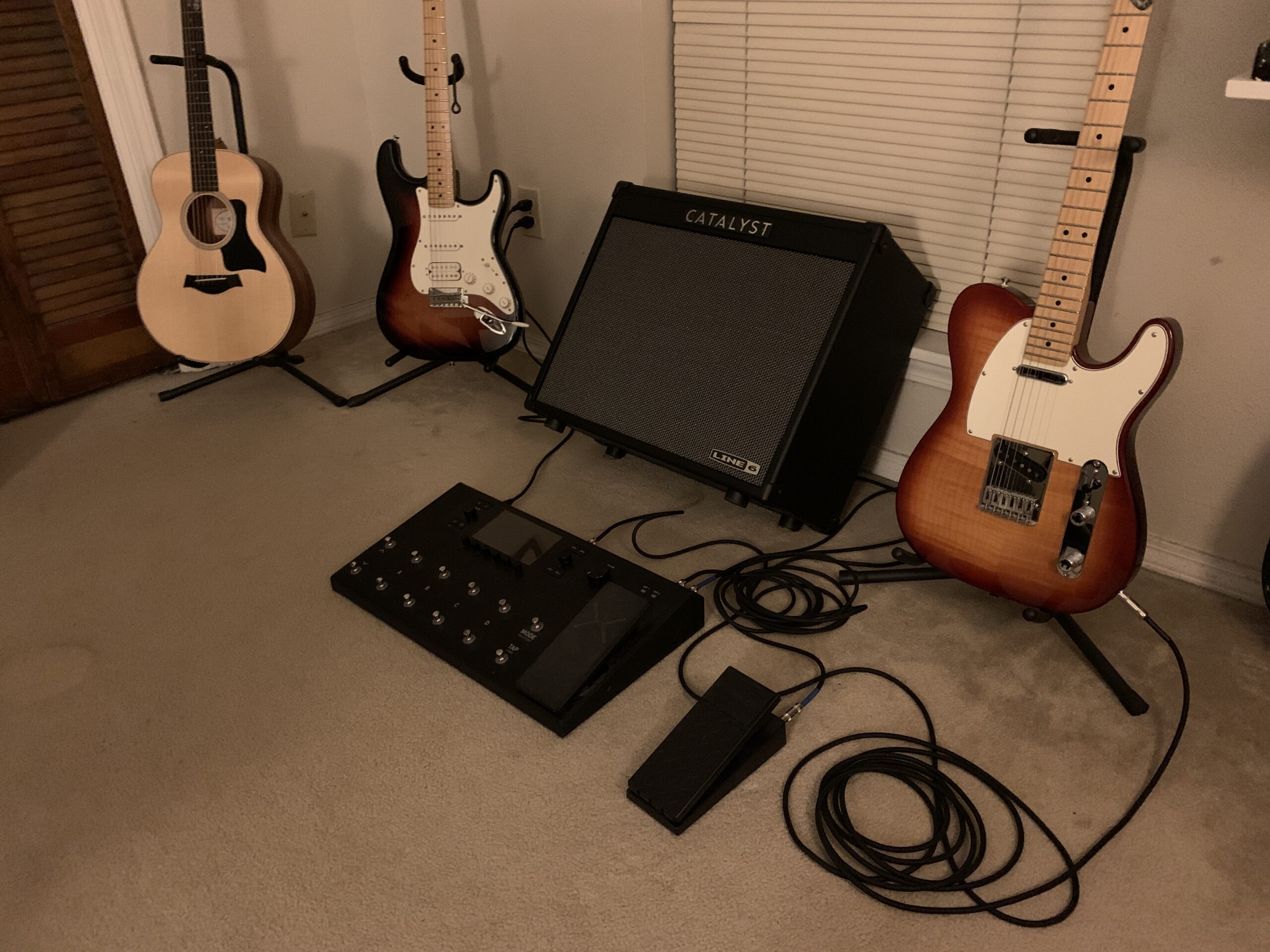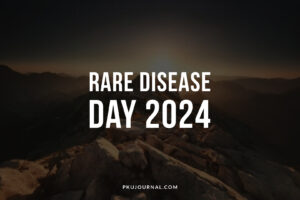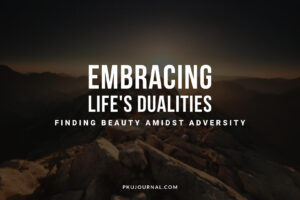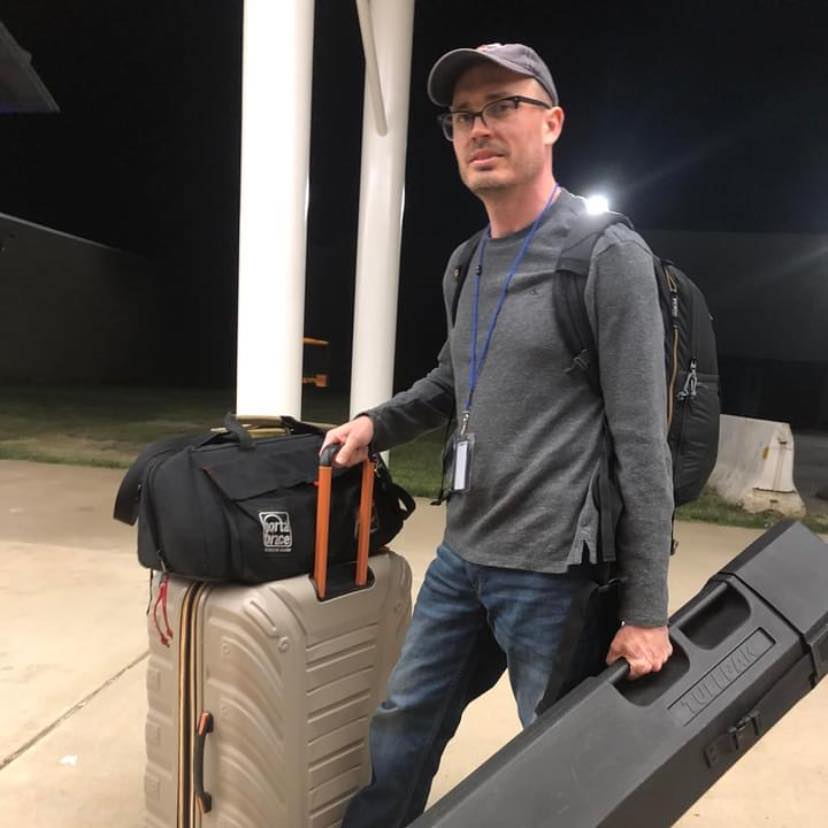Finding Beauty in Life’s Challenges… As I wrap up season one of my podcast, Never Give Up: A Rare Disease Podcast, I reflect on how it has helped me open up and share personal stories with the rare disease community. In this article, I discuss my love for music and how it has helped me cope when life gets tough. Join me as I explore what comes next and how I plan to keep moving forward.
Week 9 – Life is Amazing: Finding Beauty in Life’s Challenges
Season 1 of Never Give Up: A Rare Disease Podcast is almost over. Next week, on July 4th, I’m releasing the final episode.
And honestly, I’m ready for it to be over.
Don’t get me wrong, I’m glad I produced this podcast. I needed to work on it so I could move on in life. I hope it has helped you in some way.
But I’m exhausted. Mentally and emotionally exhausted.
I’ve shared personal details with the community over the years. But nothing like this. And certainly not for this long.
I had finished the majority of the production work for the podcast long before it aired. But what I hadn’t considered was how draining it would be to promote the podcast. To have to keep talking about it for 10 weeks. Some of the episodes are intense, and to keep reliving those memories these past 10 weeks hasn’t been easy. If you know me in real life and are wondering why I’ve seemed “off” recently, this is why.
I knew that sharing these stories would make me feel vulnerable.
I just wasn’t prepared for how vulnerable I’d feel.
But I opened up and shared these stories because I felt that people might benefit from them in some way. If this rare disease life is a battle for you, then hopefully you feel less alone.
And I’ve shared stories unrelated to the rare disease life, like this one about my grandmother, because I thought that they might help you reflect on your life.
But now that the show is winding down I’m looking ahead to what comes next for me.

Playing Music
I was a teenager when I first started playing guitar. And now, 27 years later, I’m still playing.
I’ve said earlier in the podcast that I almost majored in music. I didn’t go that route because I had discovered video production, and decided to pursue that for my career.
But my guitar stayed with me. Seriously, it’s something I pick up every single day. Most of the time, when I’m fixing hot tea and waiting for it to brew, I’ll just set the timer and noodle for a bit… Anything to keep my fingers warm.
That band I discussed in the episode… I played in it for 8 years during my twenties and early thirties. It was a church band, and although that band isn’t part of my life anymore I remember it fondly. At one point, between practice and services I was playing 9-10 hours per week. And that doesn’t include time spent at home practicing by myself. We often learned songs at the last minute, right before playing them live. I learned to improvise, be in the moment, and “find the pocket”. And I learned to transpose from one key to another on the fly. All these are essential skills to being a well-rounded musician.

I haven’t played in a church band, or any band for that matter, in over 10 years. That was a different time in my life and I’m a different person.
But playing guitar still relaxes me. I try to play every day. And formally practice, as well.
I’ve been in production mode for the podcast for so long that I haven’t taken time for myself recently. So, now that the show is winding down, I’m trying to pick up the guitar more. And even sit at the piano… I did eventually return to the piano, and while it isn’t my primary instrument I love improvising and composing music with it. Once I had an understanding of music theory because of my guitar studies, learning the piano became more enjoyable to me.
Which brings me to this… One hobby I picked up during the pandemic was music composition. It’s amazing what you can do with a laptop and digital piano these days… like compose orchestral music.
A few years ago at Christmas I was missing my grandmother like I haven’t in years. And so, I wrote a piece of music for her. We loved watching movies together, and so I tried to imagine the kind of film music she would have enjoyed. Here it is. I named the song after her: “Etoile”. If you want to check out some of the other songs I’ve written – actually, they are more like experiments since this is a new skill I’m learning – here’s my Soundcloud page. Now that I have more time I’m going to start posting some more music there as I keep learning.
Moving Forward
This podcast has helped me open up and share parts of myself I’ve been afraid to share with the PKU and rare disease communities in the past.
And one consequence of sharing your fears, insecurities, and even your traumas so openly…
My fears don’t look quite as scary.
Moving forward, I don’t want to live in fear anymore.
I want my fears to be afraid of me.
Someone truly awake, truly alive, and not bound by their fear. That’s my picture of freedom.
And I want to be free.
So, as I keep exploring this part of myself, this love for playing and writing music, I’ll share it with you.
I’ve held myself back from feeling, embracing, and expressing what’s really on my heart and mind for most of my life. That’s how I coped with my rare disease life… Having PKU makes me stand out at times, and I just wanted to blend in. And my way of doing that was to hold myself back, to keep things close to my chest.
But if there’s one thing that I’ve realized while working on this podcast…
It’s that I’m done holding myself back.
Transcript
I am fascinated by words and phrases. I’m a writer, after all. And certain expressions have particular connotations depending on context.
For example, if I say “9/11”, you know exactly what I mean. But if I said that in 1999, it wouldn’t mean the same thing. Context matters.
These days, if I say, “I wear a mask”, you might immediately think of COVID. That’s certainly the current literal meaning. But I’m using it now in the figurative sense. We all wear masks. We have our private life, and then there is our public self.
I find that contrast interesting. When I worked in TV news I worked closely with news anchors and reporters, people who live so much of their life in the public eye. In a sense, they were always “on”. And yet, when you work closely together in the field, you get to know each other at a deeper level. That mask comes off, and you connect with each other on a deeper, human level.
When I entered the world of PKU, newborn screening, and rare disease advocacy, it was a shock. I went from being behind the camera and out of the limelight to someone in the public eye, at least in our community.
It was a difficult adjustment. But I was hearing that my work mattered to other people, and I had a new mission in life. So I took the example I was familiar with, on-air personalities at TV stations, and adopted it in my life.
I have my private life, and my public self. They aren’t different people or personalities. But you have to decide what you want the world to know about you, and what remains private.
For years I wouldn’t talk about mental health openly. Or trauma. Or pain. I felt like my audience wanted me to talk about hopeful or inspirational topics. And to me, trauma was too dark.
But events from the last few years, especially the pandemic, taught me that confronting the darkness, and coming through to the other side, is a story of hope.
And so, when I came back to advocacy, I decided to drop the mask. To be as authentic and vulnerable as I can be. I still have my private life, the aspects of my life that I won’t share in public. Some things are just for close friends. And some things are just for me.
But the stories I’ve encountered, the traumas I’ve witnessed and endured, and my thoughts about them… That mask had to come down and I had to start talking about them.
But even after sharing my mental health story, and how that affected my life in rare disease advocacy, I thought getting it out in the open would be therapeutic. Cathartic, even. It has been. Especially speaking about it on this podcast. But I’ve also been on edge ever since.
There’s nothing like sharing your dark memories with the world to make you feel vulnerable and exposed. My mind has been stuck on an endless loop reliving the stories that I covered. And it’s isolating.
That’s the worst part about trauma. It isn’t just specific images, sounds, and feelings that won’t leave you alone. It’s the isolation of feeling like no one can possibly understand what you have experienced.
You may not be able to relate to my specific life experiences. But if you live with a rare or chronic disease, you know isolation. Very well.
In my case, when I relive trauma, it makes me vulnerable. I sense danger everywhere. My fight or flight response kicks in. It’s a vicious cycle.
And then, something happens to break the cycle and you get relief, if only for a little while.
You remember that life is just a combination of moments. Some are amazing, others mundane, and then it’s awful.
But over time you can learn to see the beauty in it all.
There’s nothing like the high after a good performance. Ask any performer. Any actor, public speaker, poet, or musician. The energy you get from an audience when things go well… it’s why you do it.
I’ve played guitar for almost 30 years. Even when I don’t practice properly, shutting myself away for an hour with my guitar, improvising, and writing some music… it’s what keeps me going. And for a season of my life, I played in a band.
Every year we played a big Christmas show. We’d spend a couple of months rehearsing for it, and I looked forward to it every year. My family would come see me play every now and then. When you play a lot you can’t expect your family to come to everything, and I played a lot. But you definitely invite them to the big shows.
But the show in 2009 felt different. My grandmother – I called her “Mama” – typically came to the Christmas shows, but she was nearing the end of her life. And I hadn’t faced that truth yet.
We had two shows that year… Saturday night and Sunday morning. After the Saturday show I was hanging out with friends, playing Band Hero on my Nintendo Wii. I’m not a drummer, but that night I was having fun pretending that I was a drummer playing a Weezer song. I don’t even listen to Weezer. But a video game that can trick you into thinking you’re a drummer, playing to music you never even listen to… that’s just brilliant.
As we were goofing around, having a great time, I got a phone call that Mama was headed to the hospital. I dropped everything and went to visit her, but not quite letting myself believe that the end was close.
The next morning, I played my heart out at that second performance. I was a rhythm electric player, so I didn’t have any solos. I’ve never been a great soloist. My job was to lock into the groove, to find the “pocket” as musicians like to say. To feel it, and keep the music driving.
I shut everything else out. And just played. In my heart, I was playing for Mama. She always encouraged me in my music. And, well, in everything I did in life. So that morning, I played for her and forgot about everything else for a while. And it was one of those rare performances when you don’t care if anyone else connected with it. You did, and that’s all that mattered.
Later that night the band had a party to celebrate. And then, when the high of a good show was just beginning to wear off, I got the first of phone calls that would soon change my life.
Mama was taking a turn for the worse.
And that’s when it hit me. “She’s going to be gone soon.”
I went to see her, said what I knew might be my last goodbyes, and went home.
The next morning I got the call. She was gone. And my world fell apart.
Many people never have a close relationship with their grandparents. Some never get to meet them. But Mama and I were very close. I never met two of my grandparents. They passed away before I was born. And one of my grandfathers died when I was five. So Mama was the only grandparent I ever really knew.
She was like a third parent to me. We were that close.
She was taking care of me the day that my newborn screening result came in, and took the call from the doctor. Earlier in life she had been a nurse, but by this time she was a retired widow. During the summers while Mom and Dad were at work, I spent a lot of time with Mama. Next to my parents, she was one of my greatest sources of encouragement and inspiration. And now… she was gone.
I had just gone from one of the most amazing creative experiences of my life… to losing the center of my world.
It was yet another reminder that life often turns sharply.
It was almost two years since I had left my career as a TV photojournalist. So I was already familiar with how life can change instantly. When you cover the news you often find yourself moving back and forth from the mundane to heartbreak, in an instant. One minute it’s a slow news day and you’re at a kindergarten graduation. And the next you’re at a car wreck, filming as firefighters use the jaws of life to extricate a victim. Celebration, followed by grief. Every single day.
But I was an observer then. Now, it was happening to me.
My grandmother died on the same day, 11 years later, that my step-sister was murdered. So, that December day is always a hard day in our family. And the holidays have never felt the same. At least, not to me.
I don’t have many regrets in life. But one that I do have is that Mama didn’t live to see my life change with PKU, newborn screening, and rare disease advocacy. She would have loved to meet and talk with my friends in the community from all over the world.
She was a profound voice in my life who encouraged me to take whatever I experienced and turn it into something positive. That’s something I’ve tried to do with my advocacy work all these years. And it’s what I’m trying to do now as I think, write, and speak about mental health.
This last year, as I’ve been confronting my past and thinking about my current life in advocacy, I’ve re-experienced a lot of grief. I avoided thinking about trauma for years. I walled that part of my life off, locked it down, and threw away the key.
When you’ve experienced trauma there’s a tendency to close yourself off from others, and to numb yourself to the pain around you. You feel like you just can’t take anymore. So you’d rather feel nothing.
Last year I tore those walls down, reached out to friends I had not spoken with during my years of isolation during the pandemic, and my heart opened up again. I was able to experience joy again. But also, pain.
This time, I didn’t run from it. I’ve already shared some of those experiences on this podcast. But there are many others I haven’t. Some that I just can’t talk about. The stories were too graphic and upsetting, even to describe them to you in plain language.
And during that journey last year, in the midst of the confusion, grief, and despair as I struggled to find meaning in it all, I read this quote by author L.R. Knost:
“Life is amazing. And then it’s awful. And then it’s amazing again. And in between the amazing and awful it’s ordinary and mundane and routine. Breathe in the amazing, hold on through the awful, and relax and exhale during the ordinary. That’s just living heartbreaking, soul-healing, amazing, awful, ordinary life. And it’s breathtakingly beautiful.”
I don’t remember where I read that. But it hit me deep in the chest. It took my breath away. Because I knew it to be true.
Yes, life can be awful at times. Sometimes right after moments of pure joy. Just ask any rare disease parent who experiences the joy of birth, followed by intense fear after receiving a call about a positive newborn screening result. Or someone who finally gets their dream job, followed by a rare or chronic disease diagnosis that leaves them unable to work. Or someone doing great with their rare disease treatment, feeling their best in years, only to lose access to their prescribed medications because of people who don’t understand the rare disease life.
As I sit here in a coffee shop, typing up this episode that I wrote earlier in the morning, I’m still processing the news that I received an hour ago… that my prescribed PKU medical drink, that I need every day to function and thrive, is on back order with no ETA. Our community has been facing this formula shortage crisis for the last year. And today, as I’m writing this story, it just hit me.
Life can be amazing. And then it can be awful.
And when we are in those awful moments, awful is all we can see. It’s in those moments that we need a lifeline. Something to help us hold on to hope.
Sometimes that’s community. And sometimes it’s just the power of words.
That’s what this quote was to me. A lifeline when all I could see was awful. When I felt awful. And when life didn’t seem like it could be amazing again.
When I wrote the first draft of this episode this morning, I was feeling pretty great. Then I got the news about my medical drink, and I’m not feeling as great. I’m anxious. I have a stockpile for emergencies, but as of this moment I have no idea when I’ll receive a shipment.
A friend of mine who has PKU calls this his background anxiety. Even when you aren’t consciously thinking about it, it lurks in the background… the fear that you’ll lose access to your medically necessary prescriptions. But I digress. My anxiety right now is getting the better of me. So I’ll go back and read that quote again:
“Life is amazing. And then it’s awful. And then it’s amazing again. And in between the amazing and awful it’s ordinary and mundane and routine. Breathe in the amazing, hold on through the awful, and relax and exhale during the ordinary. That’s just living heartbreaking, soul-healing, amazing, awful, ordinary life. And it’s breathtakingly beautiful.”
Please don’t misunderstand me. I’m not quoting empty platitudes. I’m not saying, “think positive thoughts” with a smile on my face while ignoring your pain. I think many people do that because they don’t know how to confront pain. What to say to someone who only sees darkness in their life right now.
I speak as someone who knows, who has been there, and is coming through to the other side.
Just hold on.
The darkness is only one side of life. It is also stunningly beautiful.
I made it through my dark season. Encountering the PKU community and reengaging in advocacy helped me see that beauty again.
It’s the people in the rare disease community. They are the beauty I needed to see again. People struggling through life but also trying to make a difference in the world.
I’ve been fortunate to travel across the world and meet some amazing people in our community… Within the PKU community… Those who have dedicated their lives to newborn screening… And in the larger rare disease community as well. It’s been the best experience of my life.
Producing videos is my profession, and I love it. But what I love even more is meeting the people I interview and just talking with them. Or becoming friends with other “PKUers” as we say in our community… With those who are doing amazing work in advocacy and media for the PKU community, getting to know them, and just hanging out.
Doing life together. That’s the whole purpose of community. And it’s what keeps us going when times get rough.
Life is amazing. And then it’s awful. And then it’s amazing again… And somewhere along the way, if you reach out, find a community, find your people, you have a support system for when it gets awful again.
The positive memories, the assurance we have spent our lives well by investing in other people… That’s what gets us through the dark times that eventually come.
Life isn’t perfect. It’s messy. Chaotic. And it can break your heart. If things are going well for you now, just wait. Eventually, you will have a rough time for a while. It’s just a fact of life.
But you need something to hold on to when it’s a challenge just to get out of bed.
That’s the power of the rare disease community. We develop relationships while we lock arms and dare to change the world. And when the awful comes again we don’t have to be isolated.
When I’m going through a rough time, I also write through it. Most of this podcast began in my journal, in a time when I couldn’t see past the awful. But what keeps me going is that I know the awful times are only one part of my story. I’ve been through this before, and I know the way out.
Maybe you’re in an awful moment now. Or maybe you haven’t gone through a life-changing heartbreak yet. Either way, take heart. It won’t last forever.
One day, you’ll wake up, and that heartbreak won’t be the first thing you think about. You’ll go throughout the day and maybe you’ll have an occasional reminder. But it won’t be on your mind constantly. If you make an effort to slow down, savor each moment, and truly appreciate the fragility of life, how fleeting and beautiful every moment is, over time you’ll discover something new in your heart.
Gratitude.
An existential awareness of how beautiful life is.
Something earned through hard experience.
Something no one can ever take from you.
Something that empowers you…
To never, never, never give up.











Leave a Reply